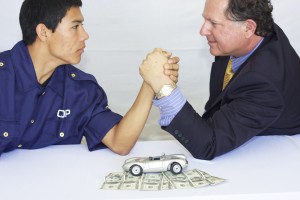It is the age old dilemma that people, whether Mexican or U.S., don’t trust banks. And if a tax is imposed for depositing money, more mattresses get stuffed and more money is buried in the back yard.
That is precisely what is happening in Mexico where the Mexican Government’s “Cash Deposit Tax” levies a 3% tax on any pesos in excess of 15,000.To put into American perspective, that is only about $1,054.00 per month at an exchange rate of 13 pesos per dollar. So if you are a restaurant business depositing $100,000.00 per month, you can add a $3,000.00 tax line item. That might be what you pay in rent every month. It adds up.
So, as a defense lawyer, I am seeing more and more money being seized and eventually forfeited to the United States Government because Mexican people that do not want to pay the Cash Deposit Tax and will simply keep their money secreted at home, work, a safe, you name it. Those same hard working Mexican business people may bring the cash in and out of Mexico in sums that they earn that do not exceed the $10,000 which must be declared at the border.
The natural effect of the Mexican “Cash Deposit Tax” is that legitimate Mexican businessmen will bring their money (which is often paid in US currency) into the United States to purchase items that are scarce or overly-priced in Mexico. An example is advanced software or perishable items such as eggs and milk that would be used in a small restaurant found all over border towns such as Tijuana, Tecate, Mexicali and Nogales to name a few.
Narcotics dogs commonly alert to currency. In one case, United States v Carr (25 F. 3d 1194 (1994) Third Circuit, the court admitted evidence that is it was alright that a narcotics dog alerted to a suitcase that had currency in it because the prosecution showed that 70% and 97% all currency touches enough cocaine cause a narcotics dog to alert.
When people carry relatively large amounts of cash, they will often find a place, or make a place to secret the cash. When they approach the typical border checkpoint or the port of entry (POE) itself, it is highly likely that a narcotics sniffing dog, which are trained to alert to currency (especially exposed to drugs somewhere), explosives, and other harmful substances.
US Customs is likely to assume that if money, currency, greenbacks, whatever you want to call it, is automatically enough evidence to seize the money and place the burden on the person from whom it is seized to prove that it is not linked to illicit drug sales. That also holds true that the Government will assert the “conveyance” or vehicle such as a car, truck or van which contains the money is subject to seizure and forfeiture because under 19 U.S.C. Section 1607 and 19 C.F.R. 162.45 the conveyance is also subject to asset forfeiture and seizure.
So the natural conclusion is that although that although a large number of the seizure case do involve drugs, that the more the Mexican Government takes away from its law abiding citizens, the more legitimate money will be seized an ultimately kept by the United States Government. This is also in large part to the difference in Mexican law and United States Law, the lack of information on how to contest the seizure, the difficulty in finding and contacting a lawyer in the United States that is familiar with Asset Forfeiture and Seizure law and the administrative law side of contesting a seizure.
The amount of money that and assets that are seized daily in the United States has grown to 13 million dollars a day which amounts to 2.7 billion dollars each year. The rise in asset forfeiture and seizure has grown at a much more rapid pace than the smuggling of illegal drugs into the United States. So our mission is to get information out to the Mexican business owners that live in fear earning money in the United States or Mexico, that the seizure of their funds can be contested and that you can get your money back. Call our office for more information and leave a message 24 hours a day at (619) 258-8888 or just bookmark our webpage or look it up on the your smartphone. Call us, we can help.




